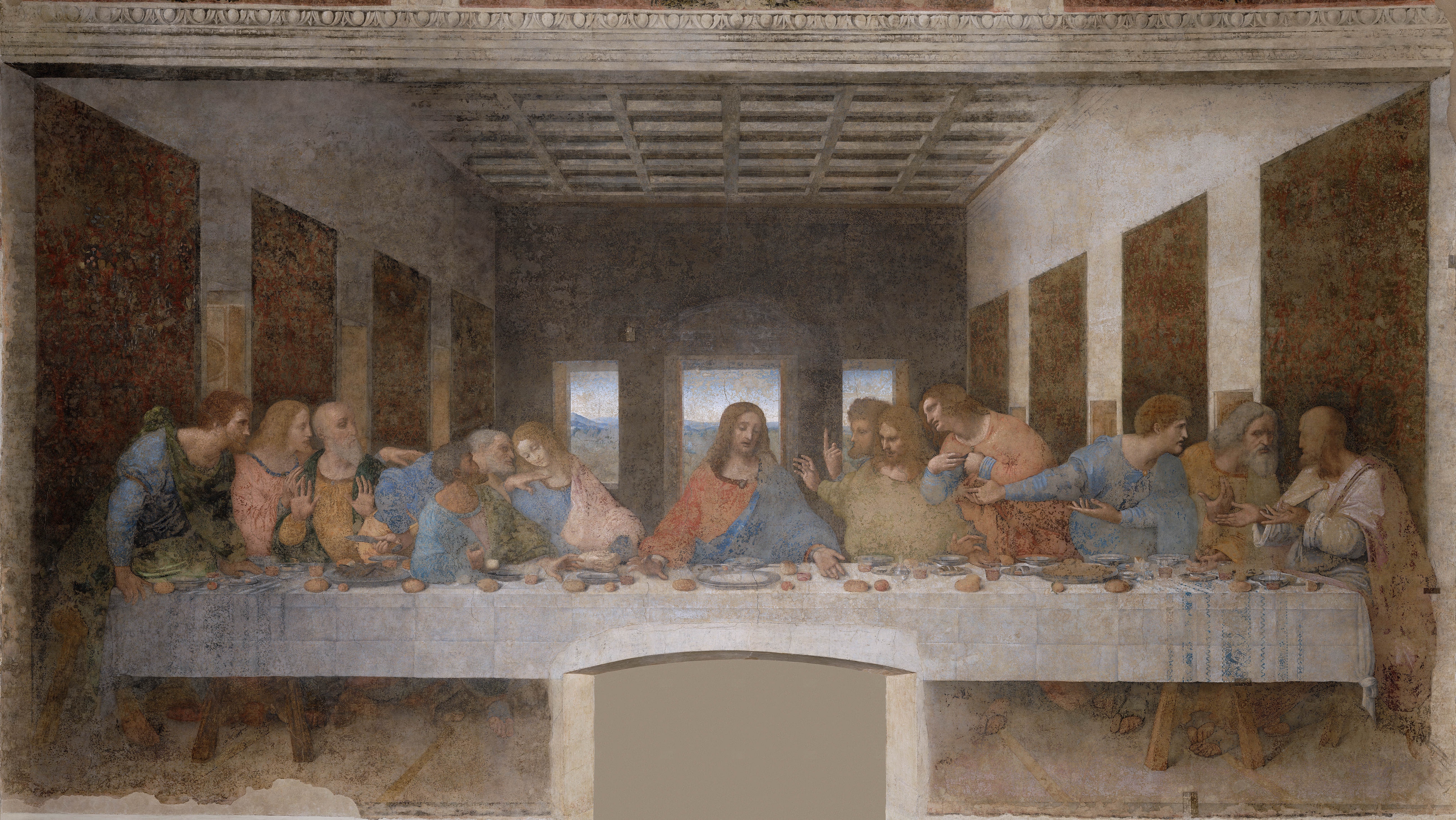 |
| The famous painting by Leonardo da Vinci of The Last Supper |
What is “Maundy Thursday”?
Today is Maundy Thursday—the Thursday before Easter.
Christians around the world and across many denominations take time on
this day to remember the Last Supper, when Jesus and his disciples dined
together for the last time before his death. What is the significance
of Maundy Thursday for us today? Below, Pastor Mel Lawrenz shares some
insight into the meaning of this holiday.

An Orthodox icon depicts Jesus washing the feet of his disciples.
Jesus
said, “Now is the Son of Man glorified and God is glorified in him. If
God is glorified in him, God will glorify the Son in himself, and will
glorify him at once. My children, I will be with you only a little
longer. You will look for me, and just as I told the Jews, so I tell you
now: Where I am going, you cannot come. A new command I give you: Love
one another. As I have loved you, so you must love one another. By this
all men will know that you are my disciples, if you love one another.” (John 13:31-35 | John in Khmer)
On this day around the world Christians remember that tense, sensitive time Jesus spent with his disciples in the upper room and the last supper he shared with them. Many refer to this day as “Maundy Thursday.”
The word “Maundy” comes from the Latin word for commandment (mandatum), which Jesus talked about when he told his disciples that he was leaving them “a new commandment,” that they “love one another.” There were probably so many things going on in the disciples’ minds in that upper room where they had their last supper together, including fear and bewilderment from Jesus telling them that someone in that very room would betray him.
Jesus handed the betrayer a piece of bread, just as he had been feeding all his disciples all along. Always giving, always gracing. Jesus fed thousands of people with fish and loaves, and every word that came out of his mouth was spiritual food for those who listened and understood. But on this night he fed them differently. Passing the bread, and then the wine, he spoke ominous, comforting words: “this is my body… this is my blood.” This was not an ordinary supper, not even an ordinary Passover. His words connected with what he had said on the shores of far-away Galilee “I am the bread of life. He who comes to me will never go hungry, and he who believes in me will never be thirsty…. whoever eats my flesh and drinks my blood has eternal life, and I will raise him up at the last day” (John 6:35, 54 | John in Khmer).
On this day around the world Christians remember that tense, sensitive time Jesus spent with his disciples in the upper room and the last supper he shared with them. Many refer to this day as “Maundy Thursday.”
The word “Maundy” comes from the Latin word for commandment (mandatum), which Jesus talked about when he told his disciples that he was leaving them “a new commandment,” that they “love one another.” There were probably so many things going on in the disciples’ minds in that upper room where they had their last supper together, including fear and bewilderment from Jesus telling them that someone in that very room would betray him.
Jesus handed the betrayer a piece of bread, just as he had been feeding all his disciples all along. Always giving, always gracing. Jesus fed thousands of people with fish and loaves, and every word that came out of his mouth was spiritual food for those who listened and understood. But on this night he fed them differently. Passing the bread, and then the wine, he spoke ominous, comforting words: “this is my body… this is my blood.” This was not an ordinary supper, not even an ordinary Passover. His words connected with what he had said on the shores of far-away Galilee “I am the bread of life. He who comes to me will never go hungry, and he who believes in me will never be thirsty…. whoever eats my flesh and drinks my blood has eternal life, and I will raise him up at the last day” (John 6:35, 54 | John in Khmer).


No comments:
Post a Comment